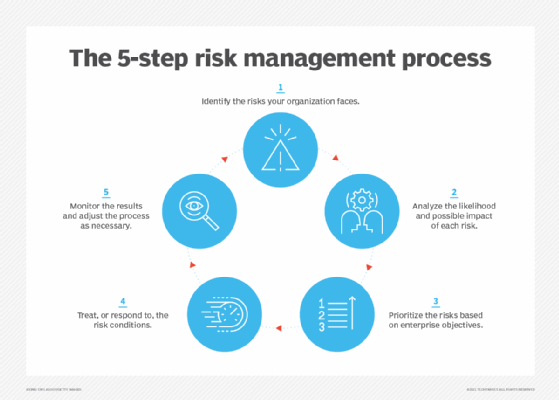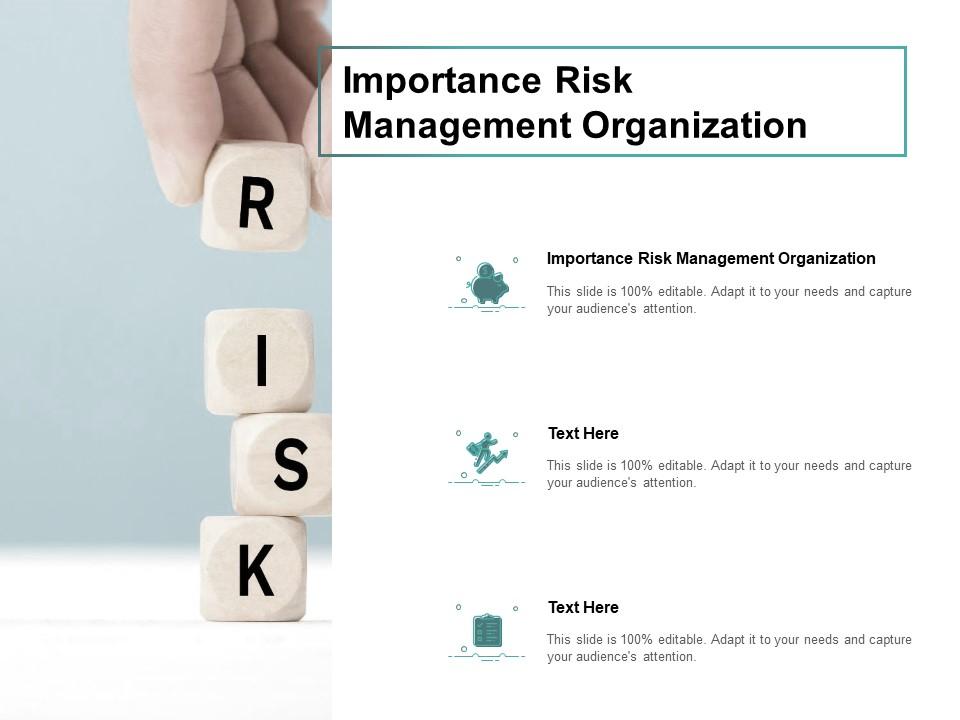Exploring the Importance of Risk Management for Effective Decision-Making Approaches
In the detailed globe of business, Risk Management emerges as a vital element in the decision-making process. The capacity to identify possible threats and chances, and plan appropriately, can lead to the difference between success and failure.
Understanding the Idea of Risk Management
Risk Management, a crucial part in decision-making, is typically misinterpreted or oversimplified. Risk Management includes disciplined and structured methods, using data and insightful analyses. From monetary uncertainties, lawful responsibilities, tactical Management mistakes, to crashes and all-natural catastrophes, it attends to numerous dangers - importance of risk management.
The Duty of Risk Management in Decision-Making Processes
In the realm of tactical planning and service procedures, Risk Management plays an integral role in decision-making procedures. It assists in identifying prospective hazards and uncertainties that could affect the achievement of organization goals. By mapping these threats, companies can create methods to alleviate their effect, ensuring company connection and stability. Risk Management therefore becomes a vital device in decision-making, helping leaders to make enlightened selections based upon an extensive understanding of the risks involved. It motivates a proactive strategy, allowing companies to prepare and expect for feasible future situations. This considerably decreases the chance of adverse consequences, promoting much more reliable and efficient decision-making approaches. Consequently, Risk Management acts as a crucial component in the decision-making procedures of any kind of organization.

Just How Risk Management Enhances Strategic Preparation
In the context of critical preparation, Risk Management plays a crucial function. Initiating with the identification of possible risks, it further includes the execution of Risk mitigation actions. The duty of Risk Management is not static however dynamic, as it demands continuous tracking and adjusting of methods.
Identifying Possible Threats

Carrying Out Risk Mitigation
Risk reduction strategies can vary from Risk avoidance, Risk transfer, to run the risk of decrease. Each approach needs to be tailored to the certain Risk, considering its potential effect and the company's Risk tolerance. Reliable Risk mitigation requires a deep understanding of the Risk landscape and the possible impact of each Risk.
Monitoring and Readjusting Approaches
Though Risk mitigation is a vital step in tactical planning, continuous tracking and modification of these methods is similarly vital. It also provides a possibility to review the success of the Risk Management measures, permitting changes to be made where needed, additional enhancing calculated preparation. Tracking and changing Risk Management approaches is an important element for enhancing a company's strength and tactical preparation.
Instance Studies: Effective Risk Management and Decision-Making
In the globe of company and money, effective Risk Management and decision-making usually offer as the pillars of prosperous ventures. These cases highlight the value of astute Risk my link Management in decision-making processes. These instances highlight the crucial function of Risk Management in strategic decision-making.
Devices and Methods for Reliable Risk Management
These devices, such as Risk signs up and heat maps, help in identifying and assessing prospective dangers. Risk reaction strategies, a key part of Risk Management, entail approving, staying clear of, transferring, or mitigating threats. With these tools and strategies, decision-makers can navigate the complicated landscape of Risk Management, consequently facilitating informed and effective decision-making.
Future Patterns in Risk Management and Decision-Making Methods
As we check out the substantial landscape of Risk Management, it comes to be noticeable that the methods and tools made use of today will proceed to evolve. The principle of Risk more tips here culture, where every member of an organization is aware and entailed in Risk Management, will obtain a lot more importance. These fads advertise an even more inclusive and positive approach towards Risk Management and decision-making.
Final thought

Risk Management thus ends up being an essential tool in decision-making, aiding leaders to make informed selections based on a detailed understanding of the risks entailed. Risk mitigation techniques can range from Risk evasion, Risk transfer, to take the chance of reduction (importance of risk management). Efficient Risk mitigation calls for a deep understanding of the Risk landscape and the possible impact of each Risk. Risk feedback strategies, a crucial element of Risk Management, include published here approving, avoiding, transferring, or mitigating risks. The concept of Risk society, where every member of a company is mindful and involved in Risk Management, will certainly get more importance